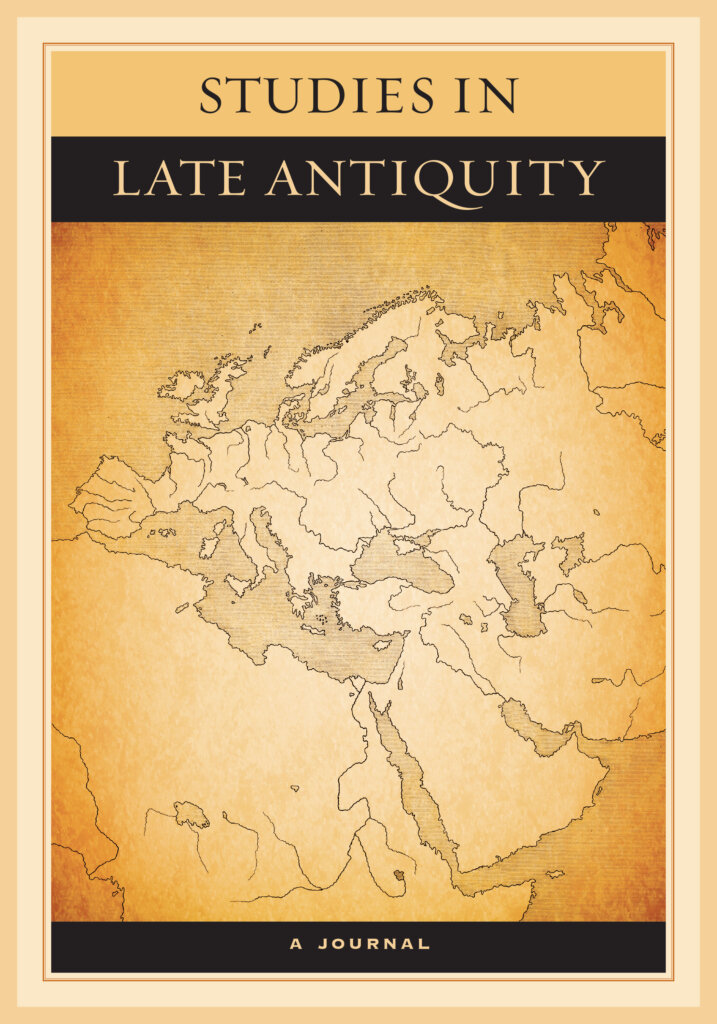
We are delighted to welcome Kristina Sessa to the editorial team for the journal, Studies in Late Antiquity. Sessa is Professor of History at The Ohio State University, in Columbus, OH. She has degrees from Princeton and Berkeley, and has taught at Claremont McKenna College as well as OSU. She is the author of The Formation of Papal Authority in Late Antique Italy: Roman Bishops and the Domestic Sphere (Cambridge, 2012) and Daily Life in Late Antiquity (Cambridge, 2018). She is presently writing a book about natural and human-made disasters titled Disasters in Late Antiquity: A Cultural and Material History.
We sat down with Sessa to talk more about her research interests, what drew her to SLA, and how she hopes to continue to expand the journal’s focus.
What are your research interests and areas of expertise?
I am a cultural and social historian of Late Antiquity, with expertise in the Late Roman West, and especially Italy. Much of my published work has focused on the gradual and sometimes problematic emergence of Christianity as a dominant ideological structure and material institution. I am especially drawn to topics that examine the relationship between ideas and social practice on the ground, and that consider how late ancient physical environments, economic conditions, legal structures, and gender norms mediated the formation of late Roman institutions, habits, and leaders. These interests reflect my early training in cultural history and linguistic-based approaches to evidence along with my more recent embrace of the material turn, which has pulled me in the direction of archaeology and environmental history. While I have long worked with material culture, I am currently taking this interest to a new level as I explore late ancient perceptions and experiences of disasters—everything from famine and an urban siege to an earthquake and pandemic.
What drew you to the editorship of SLA?
First and foremost, the journal’s growing reputation as a serious outlet for innovative research. Thanks to founding editor Elizabeth Digeser’s highly creative and industrious stewardship, SLA has quickly become an important place to publish in the field. It is among the few outlets that aim to capture a global perspective on premodern history, with articles on, for example, the ivory trade in the Red Sea and medieval Islam. I also like the journal’s incredibly wide-ranging book review section that features publications on regions far beyond the Mediterranean, as well as its “View Points” section, where scholars can engage more directly with current issues in methods and historiography.
Second, I’m at a point in my life and my career where I’m interested in broader engagement with the field, and potentially in pushing it in new directions. I think it’s incredibly important for those of us—and especially women—with ideas, energy, and time to get involved with long-term projects like SLA, where we can shape existing dialogues and help create new ones by encouraging younger scholars, as well as those from outside our comfort zones, to submit their work and introduce new conversations to the field. I also really enjoy working with authors on all aspects of the publication process (well, maybe not copy editing!), and would like to think that my experience as a writer and editor contributes to the production of first-rate articles.
Finally, I would be remiss in not mentioning that Ra’anan Boustan’s presence as coeditor was a huge pull. He’s one of the most thoughtful and rigorous scholars out there, and I’ve always loved the way his work challenges conventional boundaries. Our areas of expertise and networks could not be more perfectly complementary.
What are your aims for the journal?
In terms of moving forward, my first goal is to continue the foundational, global mission of SLA, precisely because it differentiates the journal from its more narrowly construed peers. For instance, I would like to see the journal expand its review reach to include reviews of scholarship on contemporaneous histories of the Americas, and of central and southern African regions. I would like to see the journal continue and expand its investigation of major scholarly and institutional debates within the field of Late Antiquity in particular, and humanistic studies in general. While the journal should and must publish more narrowly focused, traditionally-written research essays, it could also become the central conversational space for discussion of the “big questions” that drive our scholarship, and a principal venue where scholars present more experimental approaches to the study of a very long, and very wide Late Antiquity I would love to see SLA take some risks along these lines as well as provide a medium for a more diverse set of scholars (whether in terms of background and personal identity or disciplinary/regional focus) to share their research. Such initiatives could take the form of annual special volumes on topics such as the study of race in premodern cultures, and the use of paleoscientific methods and data in historical inquiries, to cite just two especially hot issues. In fact, there is special issue on paleoscience and the study of Late Antiquity in the making—so stay tuned!
